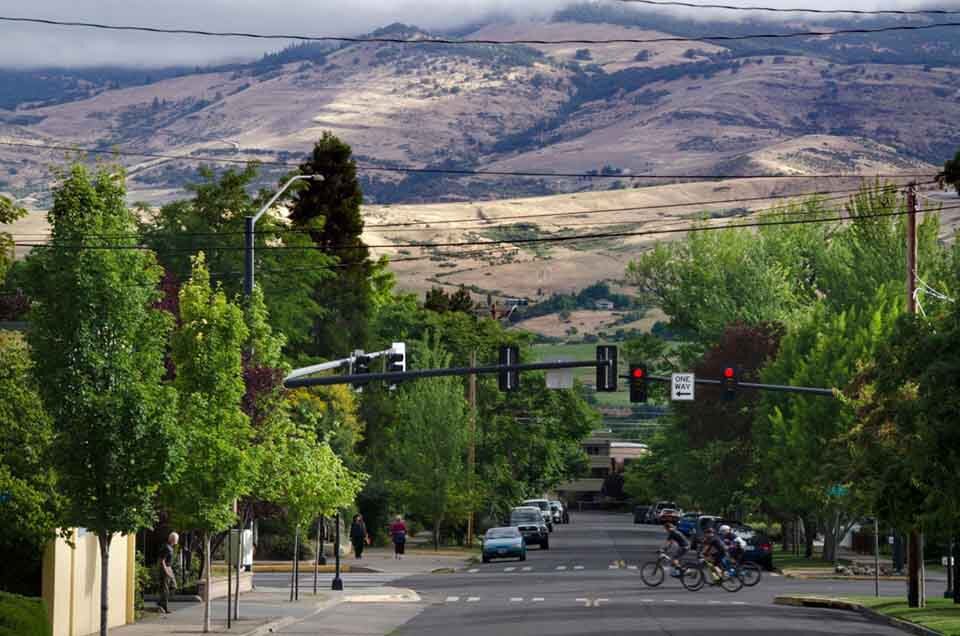The Many Ways Ashland’s Climate and Environment Policy Committee is Working to Reach Net Zero

As the disastrous effects of climate change continues to make itself known around the world, Ashland’s Climate and Environment Policy Committee is trying to do their part to halt its progress. How so? Well, for one, they’re aiming for net zero by 2050.
If you’re unsure, Net Zero refers to the balancing of greenhouse gasses to where the amount that’s being put into the atmosphere is equal to or less than that being taken out. It’s an admirable goal, and one that will absolutely do its part in slowing down the effects of climate change, but it will take a metric ton of work. So, what exactly is the Climate and Environment Policy Committee doing to tackle this challenge? They have a few things in the works at the moment.
For one, at the moment, they’re focusing on the city’s future bicycle transit infrastructure. In Ashland, transportation emissions make up roughly 17% of the city’s total greenhouse gas emissions. This is because 88% of travel is done by cars, while walking and biking make up for 9%. Obviously not everyone is expected to start walking to work or start taking their bikes, especially those who are less abled, but if Ashland could get more citizens to start taking their bikes around for their daily trips instead of cars, the average person’s carbon emissions could be reduced by as much as 67%. That would have a substantial impact on helping the committee reach their goal of net zero.
So, what would this new bike transit infrastructure look like? It would be an “all ages and all abilities” network.
On Tuesday, Ashland City Council approved eliminating the parking on North Mountain Avenue to make room for protected bike lanes. They are also seeking funding from the “safe routes to school” program through the Oregon Department of Transportation. Their aim is to enhance bicycle routes to school, allowing children to go to school on their own without requiring the help of their parents and cars. It would also make the streets safer for children in general.
So what else does the city have planned? Allow me to turn your attention to the electrification ordinance currently being considered by the city. It is an extremely complex plan, but one that would greatly aid Ashland in fighting climate change.
There are many people helping to construct the plan, with even some being high school students. They’re currently conducting research to ensure that the ordinance will balance its goals with the limitations of legal precedent when it comes to other similar ordinances. While some may criticize the fact that such research is being done by high school-aged students, their work checks out, and it’s important for the next generation (the ones who will be most affected by climate change) to become invested in such a cause.
Stakeholders are also getting involved. So far, many have been in support of the ordinance. There are a few that show some concern, however. For example, Avista Natural Gas has not responded to attempts to contact the company, and while it’s believed a representative will be coming in December to discuss the ordinance, many suspect there will be conflict. You don’t have to think very hard as to why a natural gas company would be against an ordinance to lessen the usage of natural gas. After all, they’ve already been forced to raise prices for those currently using natural gas in order to discourage its usage.
Construction of residential housing has been slow, and because of this, many are rushing to convince others to make more restrictions with the ordinance other than the prohibition of natural gas. Gary Shaff, a member of the Climate and Environment Policy Committee, has urged that they be “more aggressive” to achieve what they want.
The committee is discussing the possibility of creating smaller groups that are dedicated to focusing on specific issues instead of going in broadly. It would be a sort of “divide and conquer” idea, which many think would be beneficial in achieving their goals.
Net zero is a goal that is still a long ways away, but Ashland is determined to reach it. If they can successfully snag that goal, it would go a long way in showing that reaching net zero is not only possible for other cities, but also very viable.

Comments are closed.